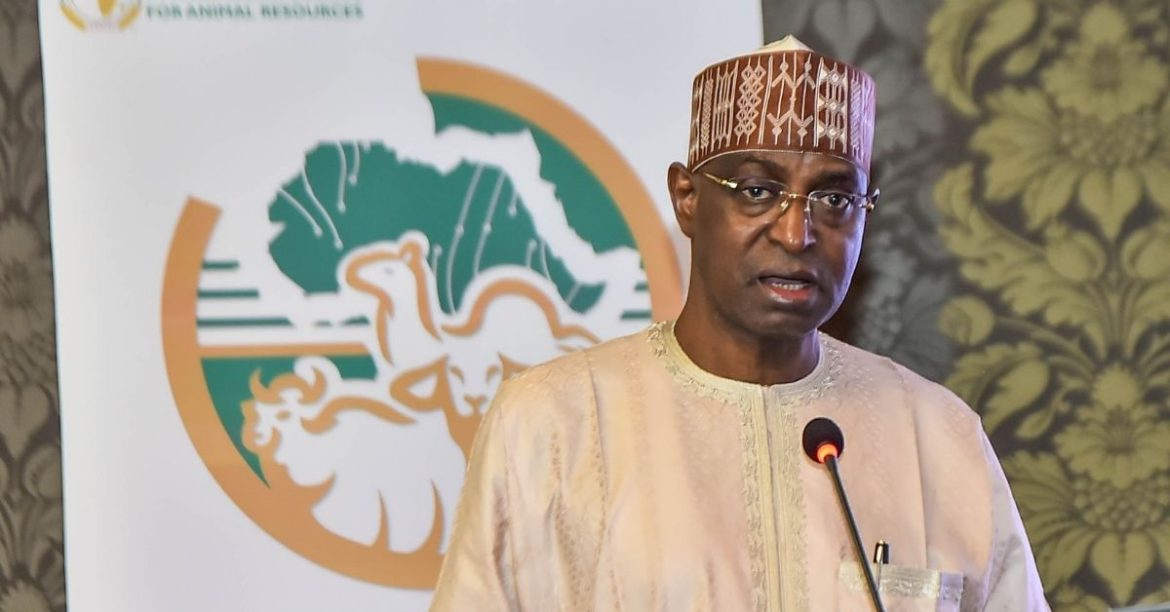382
By Daniel Adaji
The Federal Ministry of Livestock Development has partnered with OneServe Technologies Limited to digitise Nigeria’s livestock sector through a National Livestock Digital Public Infrastructure (NLDPI).
The Minister of Livestock Development, Idi Maiha, made this announcement during a courtesy visit by a delegation from OneServe Technologies to the Ministry in Abuja.
In a statement on Friday, the minister said, “Only registered wagons under the new digital system will be authorised to convey animals across the country,” Maiha said, adding a dimension of regulatory control to the initiative.
“We are planning to have custom-made vehicle wagons for the transportation of livestock.” He also posed pointed questions: “How many abattoirs do we have in the country? What are their capacities, and what is their state of functionality?”
Maiha emphasised that the digital infrastructure offers vast opportunities for stakeholders across the livestock value chain and said that a national master plan and robust data collection would enhance transparency, coordination and future planning in the sector.
From OneServe’s side, Team Lead Ibrahim Ahmed explained that the digital infrastructure will deliver an integrated database capturing details such as market locations, livestock breeds, banking services, operational days, and proximity to major commercial centres.
It would also allow users to access registered veterinarians, transporters, and other key stakeholders. “As a member of the public, when I click on the market link, I will see all registered doctors, transport companies, and stakeholders with their addresses, particularly those located near the market,” he said.
Nigeria formally established the Federal Ministry of Livestock Development (FMLD) on 9 July 2024, carving it out of the erstwhile agricultural ministry to focus exclusively on livestock. The creation of the ministry reflects recognition by President Bola Tinubu’s administration that livestock development has lagged behind in national agricultural reforms.
The new ministry is charged with transforming Nigeria’s livestock sector into a sustainable, productive, and globally competitive industry. It operates through multiple technical departments, including breeding, animal health, veterinary public health, and common services units.
Efforts to digitise livestock management in Nigeria are not entirely new. The National Animal Identification and Traceability System (NAITS) has been in place as a foundational tool to identify and track animals across the country using ear tags, passports, and digital records. NAITS aims to help in disease control, food safety, and planning by providing full visibility of the movement and history of animals nationwide.
A key plank of Nigeria’s livestock reforms is the National Livestock Master Plan (N-LMP), which follows a data-driven approach. The International Livestock Research Institute (ILRI) participated in stakeholder workshops to define baseline data, priority interventions, and a 15-year strategy. The emphasis is on overcoming fragmented value chains, weak disease control systems, limited infrastructure, and low institutional capacity.
To strengthen implementation, the FMLD undertook a learning visit to Tanzania to study its livestock transformation model. Experts say Tanzania’s success includes breed improvement, extension services, disease control, and value addition—all lessons Nigeria seeks to adapt.
Nigeria’s livestock sector faces multiple constraints: lack of quality data, fragmented markets, poor infrastructure, and limited incentives for private investment. Existing projects, such as the Livestock Productivity and Resilience Support (LPRES) initiative, target improvements in productivity and resilience for millions of livestock-dependent households.
Globally, digital innovations in livestock include cloud-based systems, artificial intelligence for disease detection, mobile apps for breeding and feed management, and online marketplaces.



